Most automated testing tools are adjustable to fit into various programming languages. But that doesn’t mean they can fit into any programming language. There are automation tools that are designed for testers with little coding. Some no-code automation tools will allow you to automate your test processes without writing a single line of code.
These tools are designed to meet the needs of both automation and manual testing. In automated testing, testers use automation tools to create repetitive test scripts and automate different test cases. On the other hand, the testers create test scripts and carry out the test cases manually. It’s time-consuming to use manual testing for your software as it will limit the test coverage you can achieve within a particular time. Automated selenium testing will lead to more test coverage as you can automate test cases and leave them running overnight. The probability of making errors or mistakes when using automation tools is very low than when using the manual approach to test your software application.
Below are automated testing tools that can be adjusted to support multiple programming languages.
Selenium
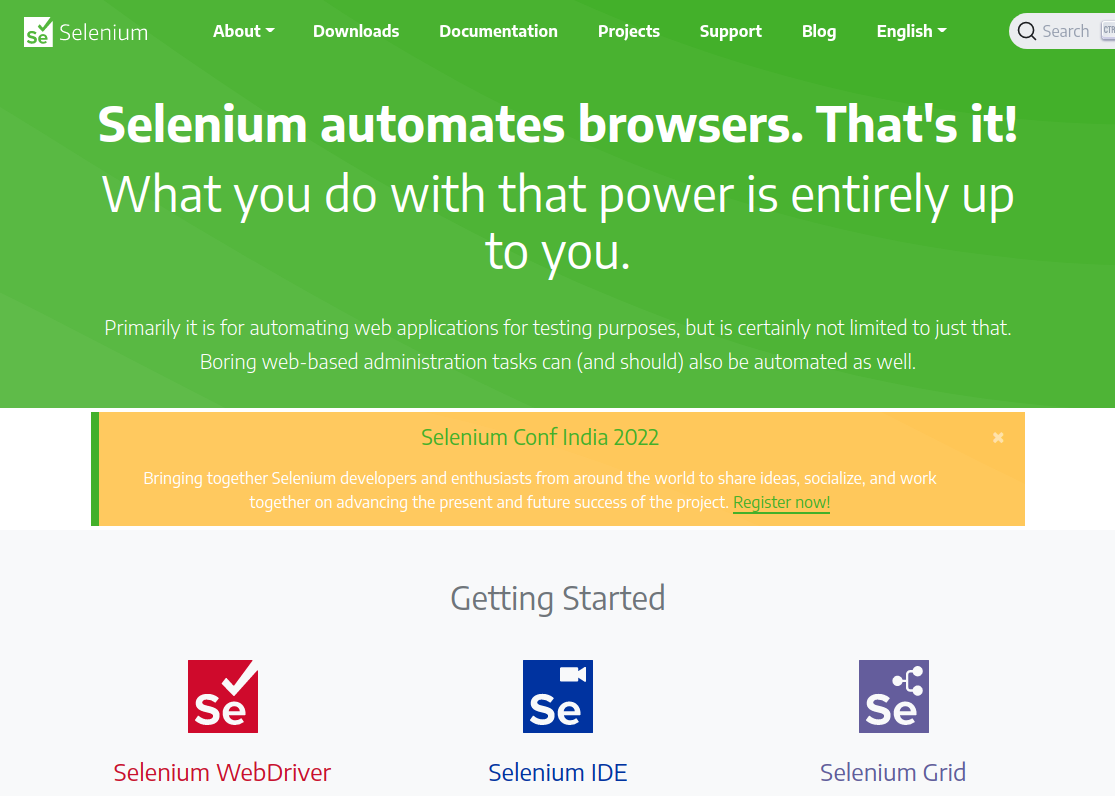
Selenium is one of the best automation testing tools that support multiple programming languages using the drivers specific to the programming language. Some of the programming languages supported by Selenium include JavaScript, Java, C#, Python, Ruby, Objective-C, R programming, PHP, and Haskell.
The list keeps growing with the release of new features integrated into the software to increase its compatibility with programming languages. Though, Selenium doesn’t support programming languages like C++ or C. With technological advancement, Selenium has evolved to keep up with web development.
You can run tests across different browsers and execute tests while the browser is minimized. As long as you have great knowledge in any of the programming languages mentioned above, then you are good to use Selenium in your software testing process.
Appium
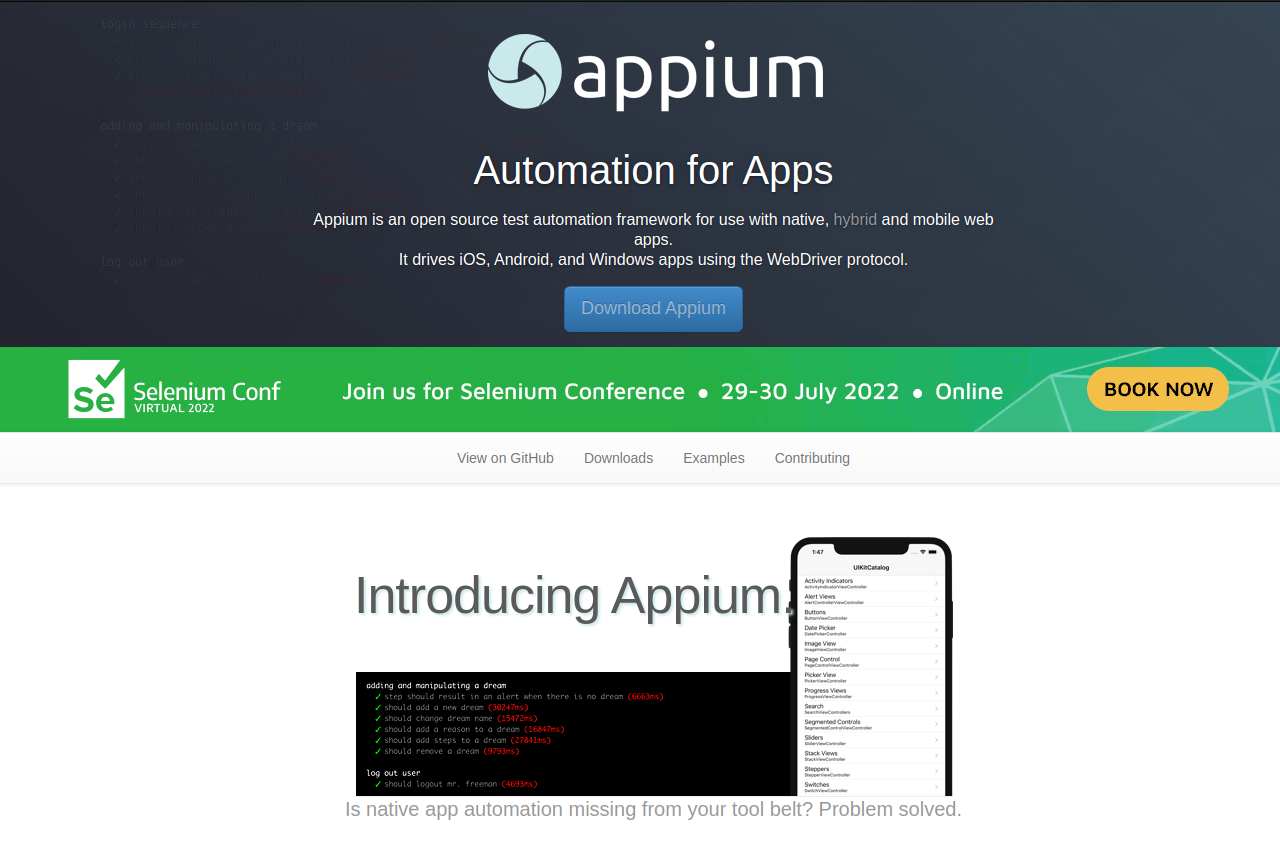
Appium is a mobile test automation tool that supports test scripts written in Python, Java, JavaScript, PHP, Ruby, or any other programming supported by Selenium. This test automation tool can test multiple devices with disparate operating systems.
But you need to understand that Appium doesn’t support testing of an android version lower than 4.2, and it has limited support for hybrid app testing. If you have large distributed teams remotely, this is one of the best automation testing tools that you can use for customizable insight generation.
It’s an open-source framework that will allow you to create and run multiple test cases while tracking your results. These results include detailed reports, dashboards, test videos, and performance data that will help you understand your application better.
Cypress
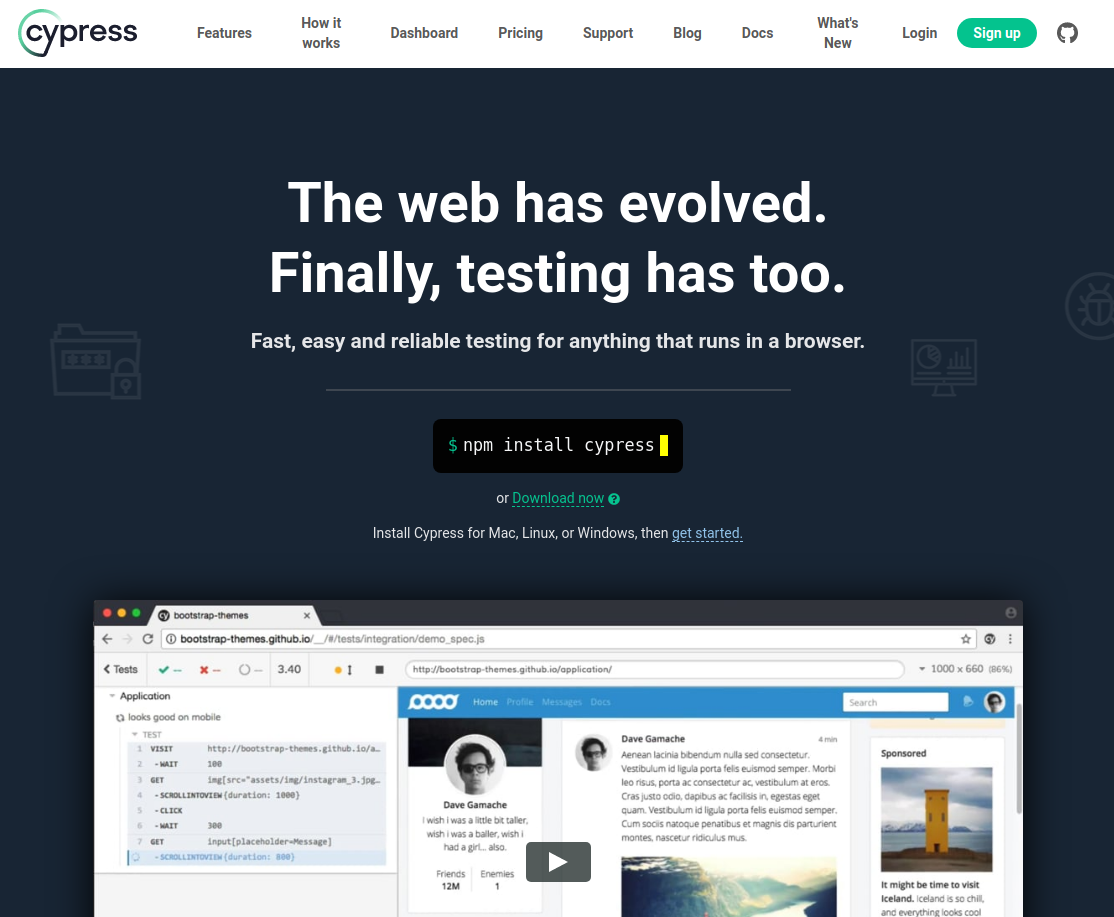
Cypress supports JavaScript, Python, and most modern architecture development frameworks like React Native, MVC-type, and Angular Frameworks. Unlike Selenium, it supports relatively fewer programming languages. It cannot also be used to drive two or multiple browsers simultaneously.
This tool is best suited for end-to-end testing with real-time execution of the commands and visual feedback. That explains why it works great with modern JavaScript frameworks. It’s highly compatible with projects created with React, Angular, and other modern frameworks like Vue.
With Cypress, you can intercept network traffic and mock the application code, which is rarely possible with other automation testing tools. You will achieve excellent documentation and be able to create and execute test cases easily without hassles.
Katalon Studio
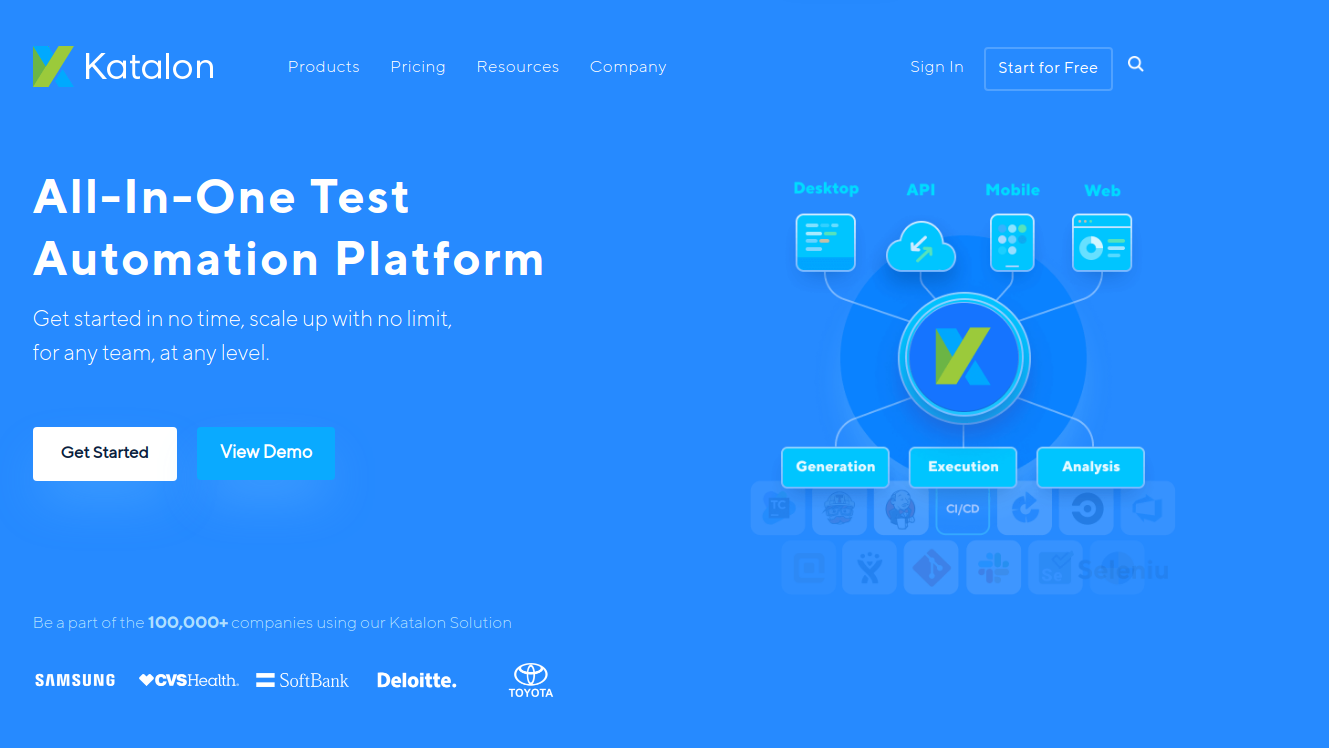
Some of the main programming languages supported by Katalon Studio include Java and Groovy. This tool supports cross-environment test executions that are based on Appium and Selenium. Still, this automation tool is compatible with the Selenium-based module for Edge, Chrome, and Firefox. This allows it to automate test management, perform debugging, and export test scripts written in Ruby, Java, C#, and Robot Framework.
It’s a great open-source tool that can be used for mobile and web applications as it’s designed with powerful features that enables it to overcome challenges in Web UI automation testing. Katalon Studio has features that support image-based testing.
One of the main advantages of this automation tool is the ease of deployment and the wide set of integrations. The dual scripting interfaces make it possible to adjust this tool to the language you understand effectively. As long as the programming language is supported, you will find it easier to automate your test scripts.
TestComplete
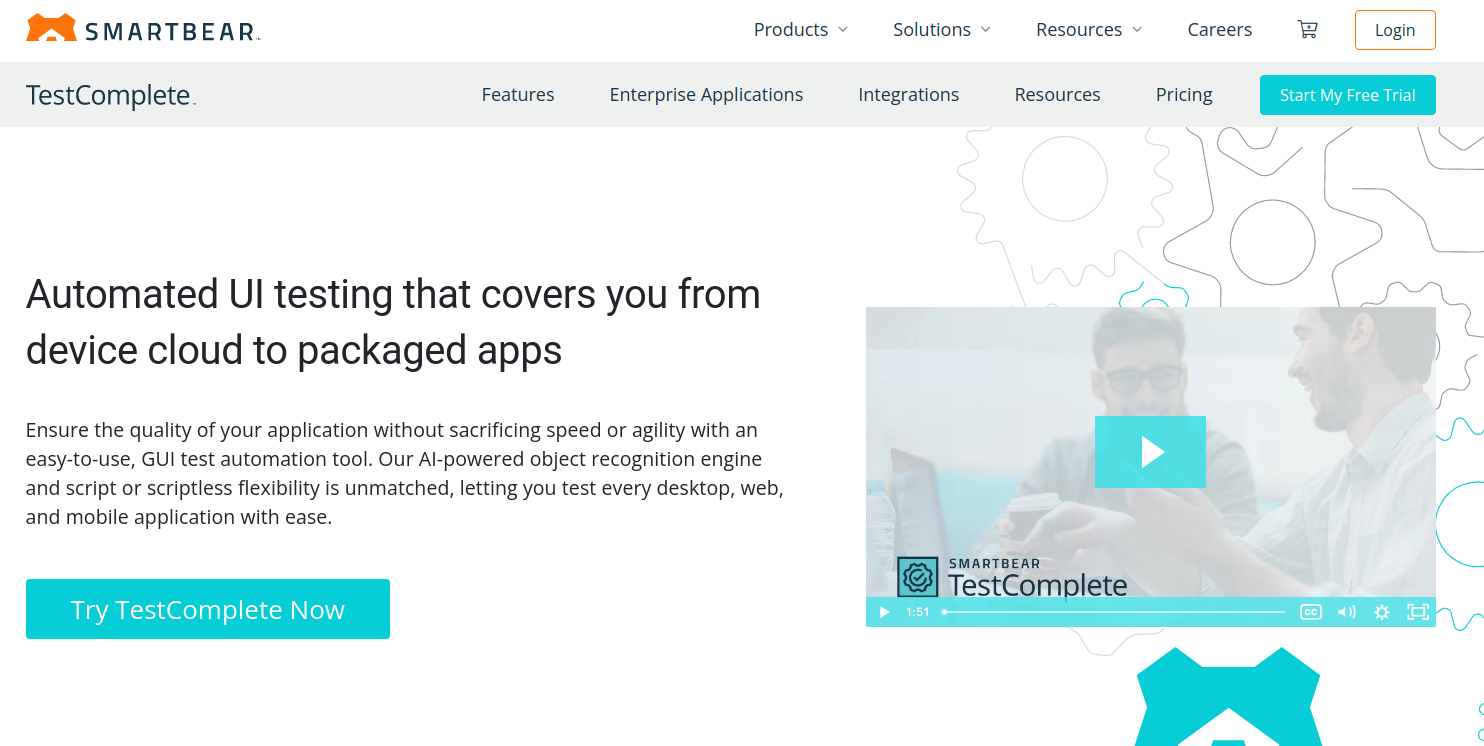
This easy-to-use automation UI testing tool optimizes the use of artificial intelligence to automate web, mobile, and desktop applications, and should be a part of everyone’s business plan. It supports programming languages like Python, VBScript, and JavaScript. The major features include superior recording, replay, and the object identification engine. You can easily create automated test scripts without the need for coding.
TestComplete can be adjusted to fit a wide range of programming languages that it supports for the keyword, scripted, test visualizer, and data-driven testing. It’s the perfect tool that you can use to increase efficiency and reduce time wastage due to its capability to scale and deliver large continuous test solutions.
You can access many environments where you can carry out multiple test cases like regression and parallel tests. With real-time information, you can quickly learn the progress of the test cases you are executing.
